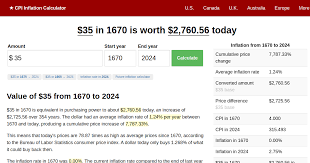Cost of Living Puts Pressure on Canadians
As Canada continues to navigate the economic landscape, rising inflation rates are creating a seismic shift in household budgets across the nation. In September, inflation reached a staggering rate of 6.9%, the highest it has been in nearly two decades, causing a ripple effect that affects everything from grocery bills to home mortgages.
What’s Behind the Surge?
The recent uptick in inflation is attributed to a confluence of factors, including supply chain disruptions, increased consumer demand post-COVID, and higher energy costs. According to the Bank of Canada, the ongoing war in Ukraine has compounded these issues by driving up global oil prices, further igniting inflationary pressures.
“We’re facing challenges we haven’t seen in a long time,” remarks Bank of Canada Governor Tiff Macklem. “Inflation is not just a number on a spreadsheet; it impacts real lives, and we are committed to bringing it back down.”
Household Impacts and Reactions
The surge in inflation is hitting Canadian families hard, particularly those with lower incomes who spend a larger portion of their earnings on essential goods. A recent survey revealed that over 70% of Canadians have altered their spending habits due to inflation, with many cutting back on discretionary purchases.
Social media has become a platform for Canadians to voice their frustrations. One tweet garnered significant attention, stating, “Every time I fill up my gas tank, I feel like I’m robbing my own savings. We need solutions, not just talk.” This sentiment is echoed by countless others who feel the financial strain as food and fuel prices soar.
Government Actions and Future Outlook
In response to rising inflation, the Canadian government is proposing a range of measures to ease the burden on households. Finance Minister Chrystia Freeland has indicated that relief may be on the way, with potential subsidy programs aimed at helping families manage costs.
Furthermore, analysts are keeping a close watch on the Bank of Canada’s next steps, particularly as interest rates are expected to rise in an effort to cool off inflation. “It’s a delicate balancing act,” notes financial analyst Jane Roberts. “While raising interest rates can help curb inflation, it could also slow economic growth, which is already in a fragile state.”
Potential Long-Term Effects
With inflation predicted to remain elevated for the foreseeable future, Canadians are left wondering what this means for their financial security. Housing prices, already inflated, may continue to rise, making it harder for young families to enter the market. On the other hand, some economists argue that innovation during tough times can stimulate growth when the economy eventually stabilizes.
As the government and central banks devise strategies to tackle this pervasive issue, many Canadians continue to navigate this challenging period with uncertainty. Whether inflation will moderate or escalate remains a pressing question, but for now, it is clear that the impact on families, businesses, and the economy will be felt for months to come.

